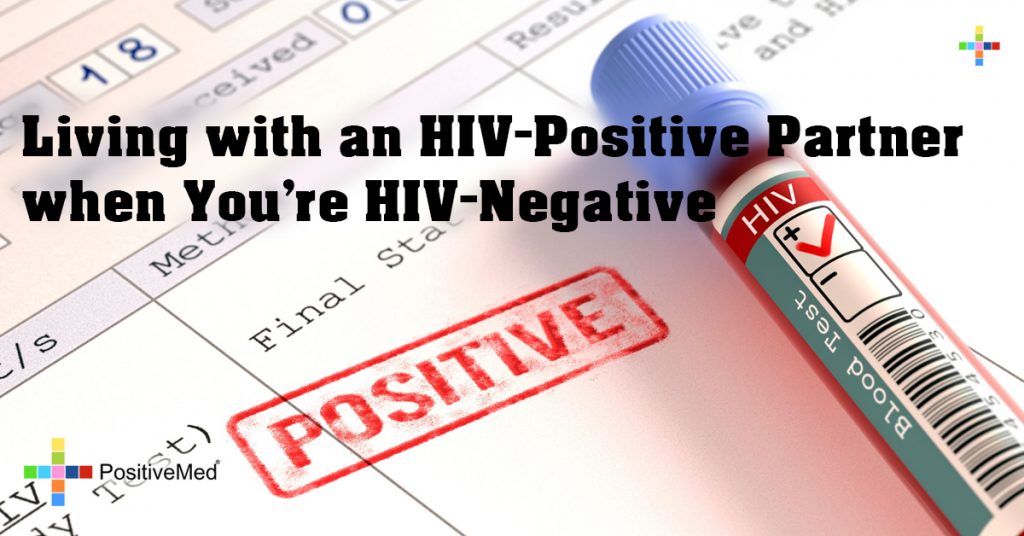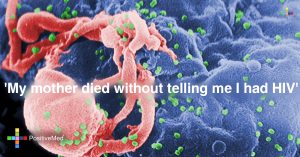
Testing positive for HIV is no longer an automatic death sentence. In fact, medicine has made stunning advancements enabling today’s patients to live with normal CD-counts and enjoy the same life expectancies as their HIV-negative friends.
This same feeling of normalcy rings true for intimate relationships regardless of HIV status. If you test negative and have a partner who’s positive, it’s crucial to educate yourselves on your individual therapy options to bring peace of mind and lasting health to you both.

Your Partner’s Therapy Matters
Highly active antiretroviral therapy (HAART) is a cocktail of medications that impede HIV at several points, from infection to virus replication. This treatment turned HIV into a chronic illness instead of a potentially fatal one. The higher your partner’s CD-4 count, the lower the chance of transmission, but those with an undetectable viral load aren’t necessarily completely free of virus particles. CD counts can be quite unpredictable. Temporary “blips” or spikes in the virus can happen, and they don’t always come with symptoms. As with all therapies, there is no such thing as 100% effective, so you need to use several security measures at once. The CDC’s position is that transmission risk is never zero.
Pre-Exposure Care
HIV-negative partners can reduce their risk of transmission with a once-daily pre-exposure prophylaxis (PrEP). If you’re wondering, “What is PrEP?” it’s a blend of two medications that prevent the virus from replicating. Used regularly, it reduces transmission by at least 92%. It’s recommended for those who have multiple partners or an HIV-positive partner. PrEP rarely causes side effects, although some people do experience some minor nausea that dissipates after three weeks. Those who use it will need a kidney function test to make sure they can handle the medication. Bear in mind that PrEP doesn’t protect against HPV and other STIs. It isn’t a replacement for barrier methods of contraception.
With PrEP it’s crucial to have regular conversations with your doctor and frequent lab testing. Due to social stigma, although rapidly evolving in a progressive direction, some might not feel comfortable talking to their doctor about PrEP. Don’t let fear stop you from taking control of your health. There are plenty of informed world-class doctors happy to assist you with your PrEP needs. Forward thinking providers, like PlushCare, are perfect for those looking to begin or continue PrEP therapy.
Tests
Even if you’re taking prophylaxis and your partner has a low viral load, frequent testing still remains critical. In addition to regular HIV tests, you should also screen for:
- HPV if you’re a woman, along with an annual pap smear.
- Herpes simplex virus two if you’re high risk or trying to get pregnant. You must specifically request this test as it won’t be offered along with a routine STI panel.
- Chlamydia and Gonorrhoea, which require swabs or urine samples. These are easily treated as long as you don’t have an antibiotic-resistant strain.
- Hepatitis
- Syphilis and trichomoniasis, which are tested for with a sample, swab, or blood test.
The Importance of Treatment Compliance
A study of some 3000 HIV-positive individuals revealed that sexually active couples have transmission rates of only 3.4% every 100 years. That number will only stay low if your partner takes their ARVs regularly and has frequent doctor’s visits. Viral loads also need to be at rock bottom for a full six months to achieve those rates, but most importantly, neither partner should have another STI because this can increase transmission rates.
Barrier Methods
Barrier contraceptives become ineffective if they’re exposed to oil-based lubricants like oil, lotion, and petroleum jelly. Only silicone and water-based lubricants should be used.
Getting Beyond Stigma and Shame
If you had diabetes or the flu, you would probably not be ashamed, and yet HIV is often viewed as taboo to even discuss. The stigma lies in the mode of transmission, with fear and ignorance helping to create even more shame. It can be difficult to get beyond these issues, especially among those who were adults during the initial AIDS crisis of the Eighties. Some people make the mistake of assuming that those with HIV are promiscuous, which further contributes to the problem.
HIV should be approached like any other manageable condition, but getting beyond the stigma is challenging. Victim blaming not only happens but prevails, with ableism replicating like a virus in today’s society. These attitudes are toxic, but the more you know about the disease, the more you can combat the stigma. If you’re HIV positive, educating your loved ones is an excellent beginning to changing the world’s noxious attitudes towards this disease.






